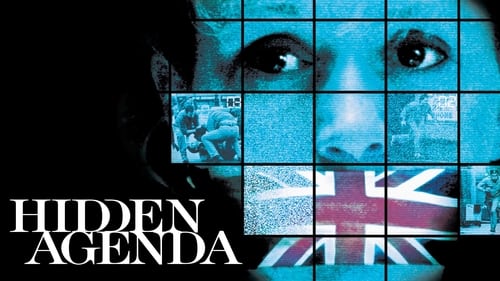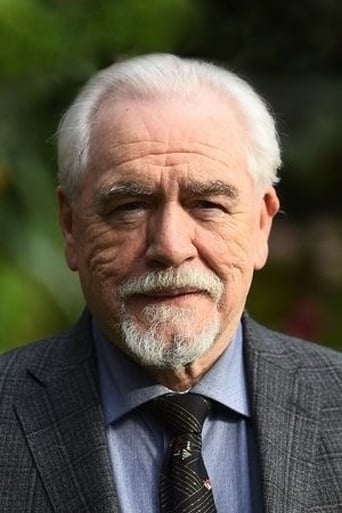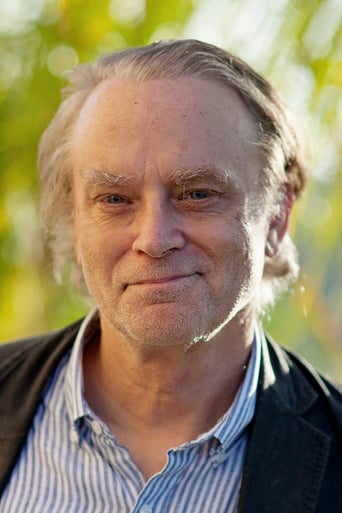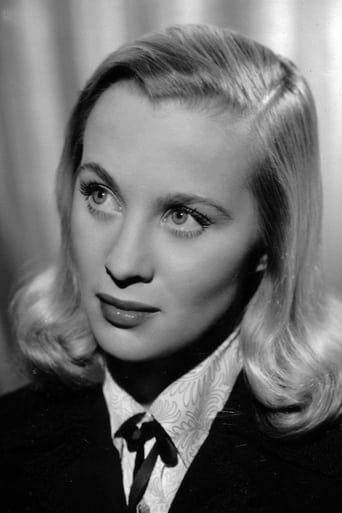Cubussoli
Very very predictable, including the post credit scene !!!
GamerTab
That was an excellent one.
Actuakers
One of my all time favorites.
Kaydan Christian
A terrific literary drama and character piece that shows how the process of creating art can be seen differently by those doing it and those looking at it from the outside.
JohnHowardReid
Another disappointing entry, this time in the fictionalized political thriller genre, is Hidden Agenda (1990), which poses questions it fails to deal with, let alone answer, and also goes overboard to work up audience interest in the main characters only to reveal at the end that most of them don't deserve our attention.In addition to this parade of characters, who start off looking and seeming sympathetic, but actually have feet of clay after all, Ken Loach's boring and superficial TV-style direction with its constant emphasis on Look Back in Anger dialogue exchanges, certainly does not help.Worse still, particularly grating is the leading male protagonist who is all bluster but absolutely no action. The only good note, so far as "Hidden Agenda" is concerned, is that the technical quality of the M-G-M DVD rates 10/10.
nobbyrott
Nothing to add to any of the above about conspiracy theory movies, the bit that made me laugh was when the Americans were watching an Orange parade and one turns to the other with the comment "Frightening", naturally the other agrees wholeheartedly."Frightening"??Uniformed and disciplined flute bands leading groups of smartly dressed (i.e. suit, white shirt and dark tie) males bearing the traditional Orange Order sash.Well it is Loach so we can expect nothing else.Presumably he would find Republican/Fenian parades inspiring.
Chris Lawson
Whooaa! Slow down, sol1218 from Brooklyn NY.The political scene in the U.K. looked like this: Edward Heath, bachelor leader of the Conservatives, won the election in 1970. He took Britain into the then Common Market in 1973, but called an election in February 1974 when the miners forced him to declare a three-day week.The Tory slogan for the election was: Who governs Britain? The result was confused, but the message was fairly clear: Not you, matey. Labour under Harold Wilson took office with a slim majority. Wilson called a second election in October, which he won narrowly, increasing his majority slightly.He held a referendum on the Common Market in 1975, which he won by sidelining the extremists of both Left and Right. He ruled until 1976 when he resigned from politics, for reasons which were obscure at the time, but probably because he had been diagnosed with Parkinson's. It is certainly true that the Right plotted endlessly against him.Jim Callaghan, who had been Chancellor, Home Secretary and Foreign Secretary, took over as P.M. and called an election after his full five-year term. (In the U.K. governments normally call elections after four years.) In fact Callaghan was forced to do so because of a move by the Scottish Nationalists. Had he called the election just a year earlier, he stood a good chance of winning, say many pundits.Meanwhile, the Conservatives had deposed Edward Heath who had lost them two elections, and Maggie Thatcher replaced him as leader. She swept to power in 1979, and as we all know, won the next two elections.Economic chaos was the watchword of the day and there were many strikes. The situation in Northern Ireland, which had started simmering with the Civil Rights movement of 1968, gradually deteriorated. The assassinated politician of the film whose name is Nevin, may well represent Airey Neave, a war hero who had escaped from the high-security Colditz Castle, a German-speaking lawyer who had attended the Nuremberg Trials and a hardline Conservative with military and security connections, who was a close adviser of Thatcher. He was blown up outside the House of Commons on March 30, 1979, by the INLA a few weeks before the election.Ken Loach has never made any secret of his sympathies for the Irish cause. His powerful film "Wind that shakes the barley", which apparently did not make much money in the U.K., had Conservative politicians fulminating about treason and lack of patriotism because of his portrayal of the brutal Black and Tans. The name was given to the ex-British army personnel and (inaccurately) also to the auxiliaries who were sent to Ireland between 1920 and 1921 to crush the IRA and Sinn Fein, but who also attacked and killed civilians. Historians agree, however, that Loach was pretty accurate in his historical recreation. The film also shows the ruthlessness of Irish-on-Irish killings in the Civil War afterwards.
mlstein
Not top-drawer Ken Loach; the "thriller" elements are well-done, but the warmth and depth Loach brings to his working-class stories has no place here. There's a structural flaw in the script, too--it presents itself as a film about Northern Ireland but then jumps headlong into something equally involving but quite different. It is, all the same, a well-crafted, atmospheric film that never lacks excitement and raises some substantial issues. More importantly, the entire film is sadly prescient. The opening torture narratives could have been translated from accounts of Abu Ghraib prison. Change a couple of proper names and the scenery, and this would be the best film around on the U.S. occupation of Iraq. Even the second half of the story (no spoiler warning, so I give no details) rings truer and truer as time goes by.Richly deserves reissue.







